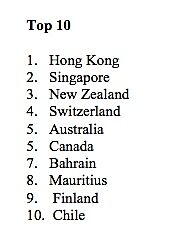Following the House’s passage of a six-month continuing resolution last week (my comments on the CR here), House Appropriations Committee Chairman Hal Rogers (R‑KY) chatted about fiscal policy with a couple of reporters on C‑SPAN. The interview did nothing to change my 2010 opinion that the House leadership handing Rogers the chairman’s gavel was “about as inspiring as re-heated meatloaf.”
While Rogers is correct that domestic discretionary spending represents a relatively small share of total spending (approximately 12 percent) and that entitlement spending is the bigger problem, his comment that “we’ve just about reached the bottom of the barrel” on such spending is a stretch. Domestic discretionary spending has dropped, but after a sizeable increase during the 2000s. And arguably more important than the dollar amount this category represents are the activities being funded. For example, the federal government shouldn’t be spending a dime on the Department of Education, which is mostly discretionary spending.
When it comes to the other side of the discretionary spending coin—military spending—Rogers parrots the standard GOP line that sequestration would be “disastrous.” That’s nonsense. Perhaps Rogers is worried that cuts to the bloated military budget will crimp his ability to dole out the goods to defense contractors back in his district (see, for example, Rogers’s $17,000 drip pan).
That leads to Rogers’s most galling comments. When asked about earmarks, the “Prince of Pork” bemoaned his alleged inability to help shovel taxpayer dollars to his district since the practice was halted two years ago. Rogers said that “it hurts me that I can’t advocate for that governmental unit that’s in some desperate need.” What hurts me is that Rogers has to nerve to cite the Constitution to justify legislative earmarking (i.e., Congress’s “power of the purse”). As my colleague Roger Pilon and I have noted, the debate over the power of the executive versus that of the legislative branch to spend is constitutionally relevant and important. As Roger says, however, “it’s the growth of spending, most on matters unauthorized by the Constitution that is far and away the larger problem.” Federal subsidies to state and local governments largely belong in the unauthorized category.

